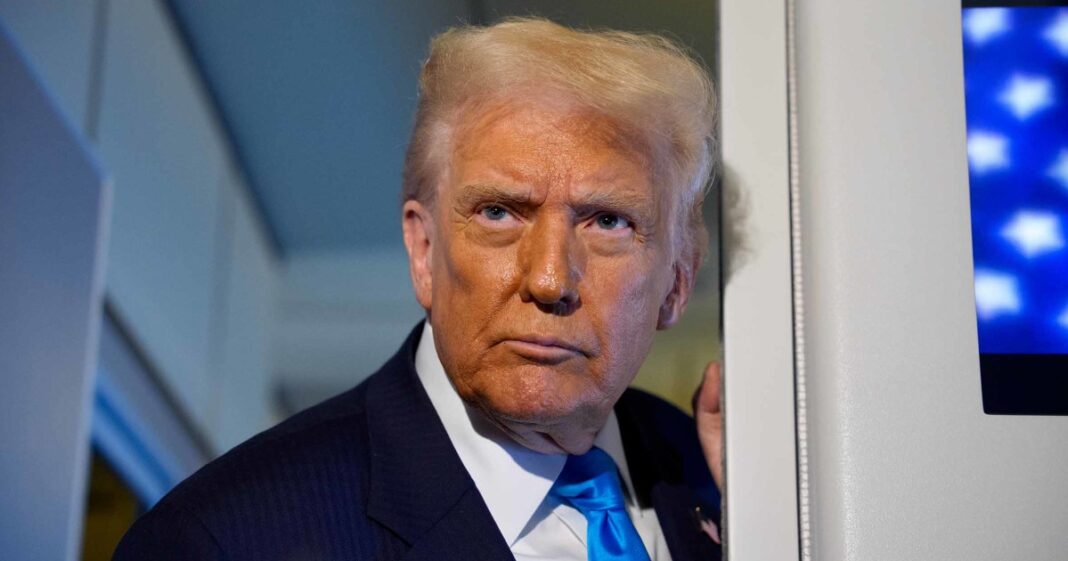Tensions Rise: The FBI’s Object to Counterintelligence Authority Shift
In a significant development for U.S. national security, the FBI has voiced its strong objection to a proposal by House lawmakers aimed at transferring the Bureau’s counterintelligence authority to the Office of the Director of National Intelligence (ODNI), led by Tulsi Gabbard. This controversial move has stirred up a complex web of power struggles within the intelligence community, raising alarms about potential ramifications for national security.
The FBI’s Stance
In an unclassified letter addressed to Congress, the FBI articulated its concerns regarding the proposed shift. The Bureau described the move as likely to create confusion, asserting that such a transition would undermine decades of experience and established operations dedicated to countering foreign espionage. With a robust framework built through 53 field offices across the nation, the FBI believes that its intimate understanding of counterintelligence (Cl) threats is crucial for effective national security.
The letter underscored the potential consequences of reassigning authority to officials lacking the specific expertise or daily engagement in counterintelligence operations, further complicating decision-making processes. The FBI’s position accentuates the need for operational coherence in a field that demands rapid responses to evolving threats.
The Power Struggle
This confrontation signifies an escalating rivalry between Gabbard and the FBI’s Director, Kash Patel, alongside other key intelligence agencies. Gabbard’s recent actions, including turf battles with the CIA—most notably revoking security clearances from national security personnel without prior consultation—highlight a contentious dynamic aiming to expand the role of the ODNI. The FBI’s objection foreshadows the burgeoning tensions surrounding Gabbard’s ambition to elevate her office’s standing.
Wider Intelligence Community Concerns
Reports indicate that the CIA and various other intelligence officials share similar apprehensions as the FBI regarding the House proposal. Their collective skepticism underscores a broad consensus within the intelligence community about the potential risks associated with diluting the FBI’s role in counterintelligence and the implications of entrusting authority to the ODNI.
An Uncertain Framework
One of the primary critiques outlined by the FBI revolves around the ambiguous nature of the proposed authority shift. While the legislation would empower Gabbard and the ODNI to approve counterintelligence activities, the lack of clear definitions raises critical questions. For instance, would prosecutorial actions be classified as activities requiring this new oversight? Such uncertainty risks creating bureaucratic bottlenecks that could hinder prompt and effective counterintelligence responses.
Legislative Developments
The debate over the House proposal unfolds against the backdrop of ongoing negotiations regarding intelligence policy bills in both the House and Senate. While the House version promotes the power shift to Gabbard’s office, the Senate’s proposals maintain the FBI’s predominant role, reflecting differing philosophies regarding the structure and oversight of U.S. intelligence operations.
Voices from the Hill
Senator Mark Warner, the leading Democrat on the Senate Intelligence Committee, expressed an openness to reviewing the management of counterintelligence activities but rejected the notion of dismantling the FBI’s established leadership. He articulated concerns about creating unresolved tensions between agencies, emphasizing that the ODNI should serve as a facilitator rather than a rival entity in the intelligence apparatus.
On the other side of the aisle, House Intelligence Committee Chair, Republican Rep. Rick Crawford from Arkansas, praised the House bill, deeming it a necessary reform of the nation’s counterintelligence strategy. He cited a need for a more proactive stance against adversaries, who continue to operate in a ‘war footing’ against U.S. interests.
Historical Context
The role of the Director of National Intelligence emerged following the September 11 attacks, aimed at enhancing inter-agency cooperation and fostering better information-sharing among the country’s numerous intelligence entities. Shifting counterintelligence authority now threatens to undo this critical goal of cohesive collaboration for national security.
In summary, the clash over counterintelligence authority illuminates broader themes of governance and power within U.S. intelligence frameworks. The interplay involving the FBI, ODNI, and Congress not only reflects inner workings of national security but also sets the stage for an ongoing battle over institutional control in safeguarding the nation.



